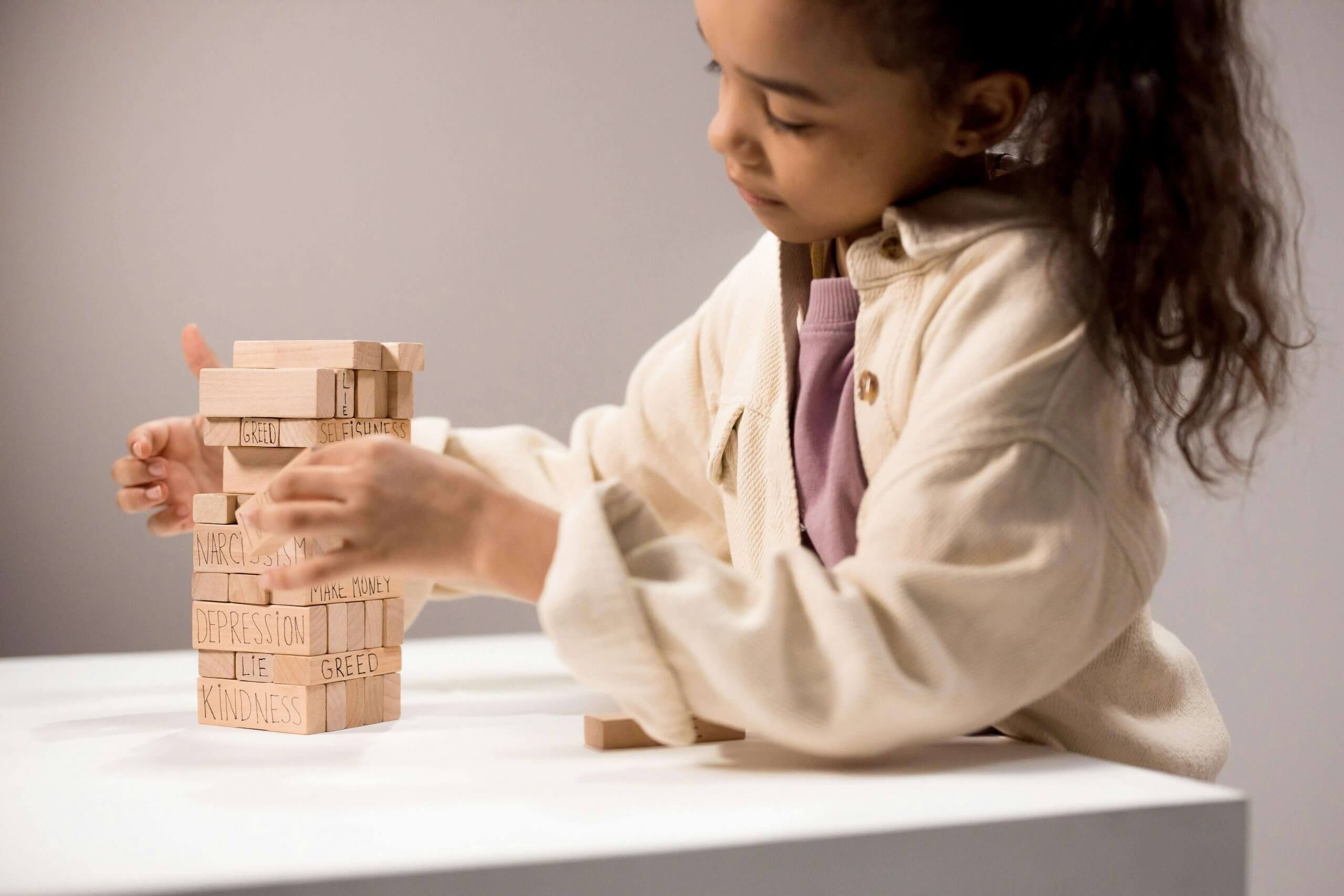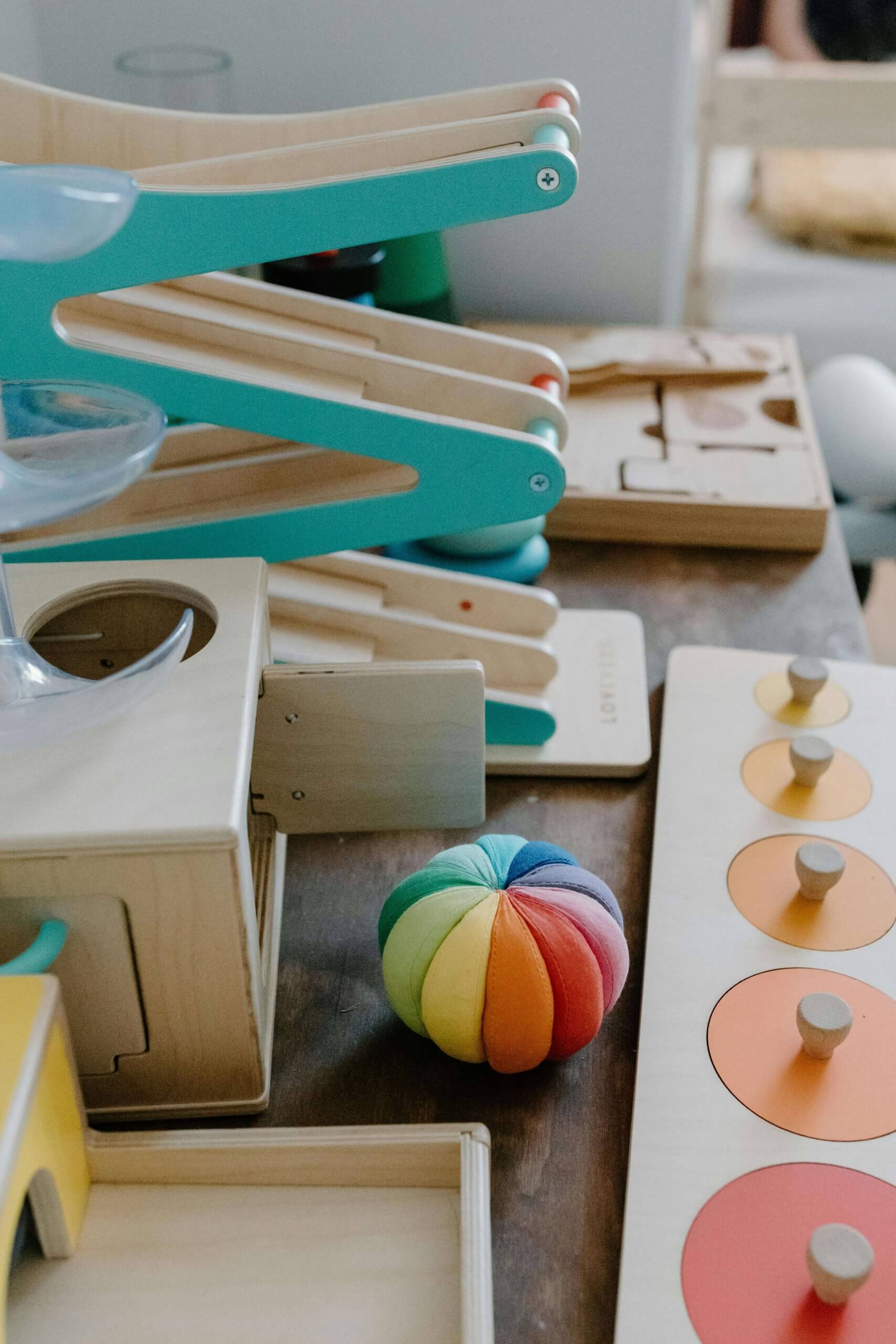As a child therapist in Branchburg, NJ, I’ve seen firsthand the power of connection in a child’s life. We live in a society that often tells us we need more – more video games, more name-brand clothes, more vacations. But what we truly need is connection. This belief has been at the core of my practice, and my wish to share the incredible impact of child-centered play therapy.
 Understanding Child-Centered Play Therapy
Understanding Child-Centered Play Therapy
Child-centered play therapy, developed by Dr. Garry Landreth, is an evidence-based practice that empowers children to take the lead in their therapeutic journey. The Association for Play Therapy defines it as “the systematic use of a theoretical model to establish an interpersonal process wherein trained play therapists use the therapeutic powers of play to help clients prevent or resolve psychosocial difficulties and achieve optimal growth and development” (Association for Play Therapy, n.d.).
In this approach, children get to decide what toys they play with and how they wish to play with them. The role of the therapist is to be more of a quiet observer than an actual participant. We become almost like narrators to the child’s play, reflecting their thoughts and feelings, empowering them to make choices, and when necessary, setting limits.
The Power of Child-Centered Play Therapy
Children are naturally curious, empathetic, and more capable than they’re usually credited. They’re reflective beings with big feelings, constantly making decisions about themselves and the world around them. While there was once a widespread belief that children were “mini-adults” capable of understanding right from wrong and life’s nuances, research and experience have shown otherwise.
Children process and communicate through play – a universal language that many adults have forgotten as work, responsibilities, and stress take over. The journey to becoming a child therapist often begins with re-learning this essential language.
Many mental health professionals, particularly those working with tweens and teens, may initially feel skeptical about play therapy. However, when viewed through a trauma-informed lens, play therapy reveals itself as a powerful therapeutic tool. Research and clinical experience have demonstrated its effectiveness, particularly in helping children process trauma.
A Window into Play Therapy: What Parents Can Expect
Picture a warm, inviting room filled with shelves of toys, colorful cushions, and a sense of safety that wraps around you like a gentle embrace. This is where the magic of play therapy happens—a space where children find their voice, explore their emotions and heal through the universal language of play.
Though every play therapy office is different, there are shared components. Like most therapy offices, there are comfortable places to sit and a desk for administrative tasks. But as you take a closer look, you’ll notice the shelves are lined with an eclectic collection of toys: miniature figures, art supplies, dress-up clothes, building blocks, dolls, and puppets. Each item is carefully chosen, not just as a plaything, but as a potential bridge to understanding.
Your child is greeted with a warm smile and a simple invitation: “This is your special time. For the next 25 minutes, you can play with any toys you’d like, in almost any way you want.” Watch as your child’s eyes light up—this is a rare moment of complete freedom and acceptance.
The next 25 minutes are a window into your child’s inner world.
Some children might dive into the dollhouse, carefully arranging families or acting out complex scenarios. Others might gravitate towards art supplies, expressing emotions through colors and shapes that words can’t yet capture. A child might build elaborate structures with blocks, each placement a silent communication of their inner thoughts and feelings.
As the session progresses, I’m not just a passive observer. I’m present, and attentive, creating a safe space where your child feels heard and understood. At the 20-minute mark, a gentle reminder: “You have about 5 minutes left to play.” Another reminder comes at the 1-minute mark—a soft transition preparing your child to wrap up their special time.
But the most powerful moment comes next. You, the parent, are invited to join us. This isn’t just a reunion—it’s a carefully crafted opportunity to observe and connect. How do you and your child interact? What dynamics emerge? Sometimes, the ways we communicate speak louder than words.
Play therapy is more than just playtime

As a therapist at Brave Minds, I’ve witnessed countless transformative moments. A child who enters withdrawn might gradually open up, using toys to tell stories of resilience. Another might work through family dynamics by carefully arranging figures and finding a sense of control and understanding.
Every play therapy session is unique—a deeply personal journey tailored to your child’s individual needs. It’s a collaborative process between the child, the therapist, and the family, built on trust, acceptance, and the powerful healing potential of play.
What Parents Should Know
- Play therapy is not about fixing or changing your child
- It’s a supportive process of understanding and growth
- Your child leads the way, expressing themselves through play
- You play a crucial role in supporting their therapeutic journey
Our goal is simple yet profound: to provide a safe, accepting space where your child can explore, express, and ultimately, thrive.
Common Questions About Play Therapy and Family Involvement
Q: What exactly is play therapy, and why should I pay someone to “just play” with my child?
A: Play therapy is far more than simple play – it’s a research-backed therapeutic approach that has shown significant effectiveness in treating numerous childhood challenges. Studies have demonstrated its success in helping children with anxiety disorders, depression, ADHD, autism spectrum disorders, oppositional defiant and conduct disorders, trauma, grief and loss, divorce adjustment, academic challenges, and various developmental issues (Bratton et al., 2005; LeBlanc & Ritchie, 2001; Lin & Bratton, 2015; Ray et al., 2015; Reddy, Files-Hall, & Schaefer, 2005).
Q: Why is family involvement considered important in play therapy?
A: Family involvement is crucial because healing happens within relationships. The Association for Play Therapy emphasizes that “families play an important role in children’s healing processes.” When families participate in play therapy, parents have the opportunity to reconnect with their own inner child, which leads to a deeper understanding of their children’s emotional experiences and needs.
Q: What specific benefits come from having parents involved in play therapy sessions?
A: Family involvement creates multiple benefits:
- It allows therapists to observe and understand family dynamics in real-time
- Therapists can provide immediate feedback and model effective responses
- Parents learn practical strategies they can implement at home
- The experience helps strengthen the parent-child bond through shared play experiences
- Parents receive targeted psychoeducation about child development and emotional regulation
- The skills learned often lead to lasting positive changes in family communication and interaction
Meet With A Play Therapist In Branchburg, NJ
In our fast-paced, often overscheduled lives, it’s easy to underestimate the power of play. But as a child therapist in Branchburg, NJ, I’ve seen how child-centered play therapy can be a transformative experience for children. It provides them with a safe space to express themselves, work through challenges, and develop essential life skills.
If you’re considering therapy for your child and are intrigued by the potential of play therapy, I encourage you to reach out. At Brave Minds Psychological Services, we’re committed to providing compassionate, evidence-based care to help your child thrive. Remember, sometimes the most powerful tool in helping a child isn’t a fancy technique or the latest gadget – it’s the simple, profound act of play.
Learn More About Play Therapy
For a visual introduction to child-centered play therapy, we recommend watching this informative video:
“Child-Centered Play Therapy” by Dr. Garry Landreth
In this video, Dr. Garry Landreth, the founder of child-centered play therapy, explains the principles and practices of this powerful therapeutic approach. You’ll gain insights into how play becomes a language for children to express their feelings and experiences.
References:
Association for Play Therapy. (n.d.). Play Therapy Makes a Difference. Retrieved from [APT website]
Bratton, S. C., Ray, D., Rhine, T., & Jones, L. (2005). The efficacy of play therapy with children: A meta-analytic review of treatment outcomes. Professional Psychology: Research and Practice, 36(4), 376-390.
Landreth, G. L. (2002). Play therapy: The art of the relationship (2nd ed.). New York: Brunner-Routledge.
LeBlanc, M., & Ritchie, M. (2001). A meta-analysis of play therapy outcomes. Counselling Psychology Quarterly, 14(2), 149-163.
Lin, Y. W., & Bratton, S. C. (2015). A meta-analytic review of child-centered play therapy approaches. Journal of Counseling & Development, 93(1), 45-58.
Ray, D. C., Armstrong, S. A., Balkin, R. S., & Jayne, K. M. (2015). Child-centered play therapy in the schools: Review and meta-analysis. Psychology in the Schools, 52(2), 107-123.
Reddy, L. A., Files-Hall, T. M., & Schaefer, C. E. (2005). Empirically based play interventions for children. Washington, DC: American Psychological Association.
 Ready to Explore Play Therapy with A Child Therapist in Branchburg, NJ?
Ready to Explore Play Therapy with A Child Therapist in Branchburg, NJ?
At Brave Minds Psychological Services, we’re committed to providing compassionate, evidence-based care to help your child thrive. If you’re interested in learning more about how child-centered play therapy could benefit your child, we’re here to help.
Take the first step towards empowering your child:
- Call us: Reach out at 908-224-7727 for a free consultation.
- Visit our office: Schedule an in-person visit to see our play therapy room and meet our caring therapists.
- Start the journey: Begin the process of helping your child express themselves and develop essential life skills through the power of play.
Remember, investing in your child’s mental health today can lead to a lifetime of better emotional regulation, increased self-confidence, and improved problem-solving skills. Let’s work together to unlock your child’s potential through the transformative power of play.
Contact Brave Minds Psychological Services today and take the first step towards a brighter future for your child.
Other Services Offered by Brave Minds Psychological Services
Therapy for children is not the only service offered by Brave Minds Psychological Services. Other services offered include EMDR, couples counseling, postpartum counseling, food allergies, and birth trauma therapy. In addition, we also offer therapy for trauma and anxiety. Our caring counselors provide mental health services for adults and teens. We offer treatment for teen anxiety, social phobia in teens, child sexual abuse, child anxiety, and more. Prefer building a support network with group therapy? Our therapists also offer therapy for equestrians, and several options for group therapy. Our services are offered in person at our Scotch Plains, NJ office and through online therapy in New Jersey.



 Understanding Child-Centered Play Therapy
Understanding Child-Centered Play Therapy Ready to Explore Play Therapy with A Child Therapist in Branchburg, NJ?
Ready to Explore Play Therapy with A Child Therapist in Branchburg, NJ?